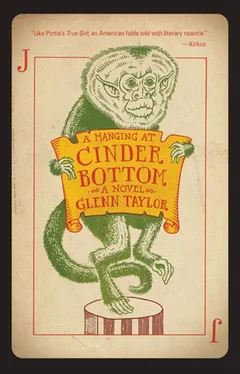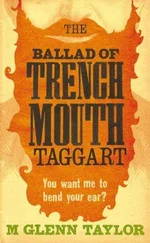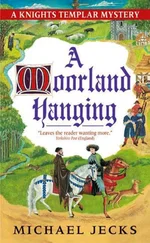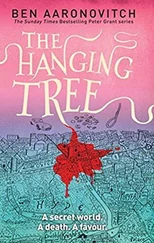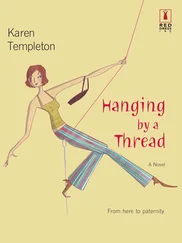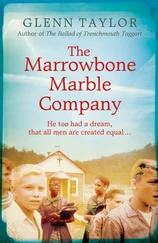The warehouse brick wore heavy paint meant to withstand seawater carried by the wind. Radiant Moon Playing Card Company it read. At the long dock on Frederick Street he looked for the man they called Bushels. He tapped his fingers against the brass piling cap. A wad of chicken wire and driftwood bobbed against the slick pilings beneath him. He looked past the smog and out across the harbor to Locust Point, the place where his father had arrived from Germany thirty-three years before. Birds dived for fish and a high-stacked vessel waited for position to dock.
Bushels stepped from the warehouse and surveyed. When he spotted Abe, he waved him over.
Bushels was what they called Bushel-Heap Lou McKill, Scotsman and former champion wrestler. Now he protected Ben Moon, or whoever Ben Moon told him to protect, and for on-the-side money, he bent nails and ripped card decks in half. He was six and a half feet tall and weighed three hundred and fifty pounds. He was quiet and known to possess an uncommon sense of decency. His sleeves were rolled to the elbow. He wore a compass rose on one forearm and a swallow on the other.
They shook hands. “He’s in his office,” Bushels told him. “Before you go up, he wants me to make sure nobody knows you’re back.”
“Nobody knows.”
“There’s been some trouble.”
“Nobody knows.”
“You check for a tail after the train station?”
“I checked.”
“Then he wants you to come straight up.”
Abe slipped Bushels a fin. “I need twenty-five decks,” he told him. “Devil Backs, the ones with the false name and New York address. Ten wrapped, fifteen free. I need the wrappers flat-packed, stamps separate.”
Bushels nodded. “I’ll bring em to the office.”
Abe followed him through the open warehouse doors.
Inside, Bushels made for the packing department and Abe climbed the stairs three at a time.
When he knocked at the big office door, Moon said to enter.
The office was wide and dark. It smelled of hot grease and newsprint. Moon was having his lunch. He stood from behind his desk and waved Abe inside.
He was an average-sized man with a well-groomed beard. The embroidered handkerchief tucked at his shirt collar was streaked in grease. On the desk was a massive book weighted open by a skillet of fried rockfish. He walked to Abe and shook his hand. He took him by the shoulder and there he squeezed and patted heavy. “Sit down for just a minute,” he said. “You want some fish?”
“I might have a bite.”
They sat and ate with their hands. “I know you need to get on a train as fast as you can,” Moon said.
“I’ll make the early morning.” Abe wiped his fingers on a stack of newspapers and pulled from his inside pockets the bankrolls he’d stashed at his temporary woman’s place. “Here’s the take from New York,” he said. “Fifty-five hundred and change.”
It was a good take from a cut-short trip. Moon held his hands up to indicate he didn’t want the money. With what he expected to soon rake in, the fifty-five hundred could walk.
Ben Moon was a wildly rich and adventuresome man whose business practices had grown increasingly bold. He was not bound by law or convention. No woman could settle him. Recently, he’d decided to fundamentally alter the path of his life’s work.
He spoke with his mouth full of fish. “You keep that and take it home with you. Matter fact,” he said, and he stood and walked to the room’s corner. There, behind a three-foot portrait, was his wall safe. The portrait was black and white and depicted a man in a flat cap with his hands in his pockets. King of Aspromonte it read across the top. He swung it open and worked the combination and returned to his desk with two thousand dollars. “Here,” he said. “God knows how long you’ll be gone.”
Abe thanked him.
From a stack of targets with eight-inch bullseyes, Moon took up a sheet. “You want to shoot a little?” Moon believed a man must keep keen his shooting ways. He’d installed a single-stall range running the length of the building. Its only entrance was at the end of his office.
“Not today,” Abe said.
A tow’s foghorn sounded from out on the water.
Moon was unsure of how to tell the young man his news, so he simply told him. “I’m getting out of the card business,” he said. “I’m selling this place.” He looked at the walls, the ceiling over his head. “It’s going to be an assembly plant for automobiles. Can you imagine it? The Chambers Motor Car Company.” He shook his head. He said, “I have some investment opportunities in New Jersey and southern California.”
“Investment opportunities?”
“Cards are on the downslope.” Moon sat back down and continued to eat. “Anti-saloon leagues will be the death of us all,” he said. He stared blank at a stack of books about birds.
Abe couldn’t think of a thing to say.
“I’ve partnered with a fella of means who’s built one of the finest rigid airships in the world. You should see it Abe,” Moon said. He thought for a moment on pulling out the blueprints, showing the young man the oversize rudder and the long sleek gondola basket. He knew Abe would appreciate such work, and the same could not be said for the other men he employed. But time was short. He said, “Took him five years, but it’s near done, and it’s sitting in Atlantic City now.”
“Man’s name a secret?” Abe asked.
“No,” Moon said. He regarded the cracks in the cold skillet grease. His new partner didn’t want their names linked. Ben Moon didn’t care for such a policy. “His name is Walter Melvin. You heard of him?”
Abe shook his head no.
“You ought to have. Man’s photographed the North Pole. Sydney, Australia, from a hot-air balloon too, with a camera he built himself. Made his money in newspapers, now he’s moved on to moving pictures.”
“That’s somethin,” Abe said. “Moving pictures.” He nodded, looking all the while at the floor.
“Got to follow the money.”
It was small talk by then.
Moon knew the young man had real matters to attend to. “You don’t want to be here for a while anyway,” he told him. “Swollen Man’s got his collectors back in town. They scalped a fella and tossed him in the water.”
Swollen Man was better known as Dropsy Phil O’Banyon, a big-time, ill-tempered Chicago bookmaker-turned-gangster who frequented Baltimore and always had bad luck at the tables there. In February, he’d lost nine hundred to Abe at a high-stakes game in Butchers Hill. He didn’t shake hands before he left.
“Phil’s sore at me,” Moon said. “I wouldn’t come down on price to sell him my outfit.” He laughed. “Crazy son of a bitch wants to get into card manufacture.”
Abe unfolded the telegram and put it on the desk. “I need you to help me understand this,” he said.
“I’m so sorry about that.” Moon wiped his hands again and yanked the hanky from his collar. He produced from a drawer the original telegram. It gave no indication as to how or why. Again, it was only Jake dying . Moon poked his finger at it. “Family,” he said. “There is nothing without family.” He’d lost his mother to cancer the year before. She was the only family he had. When he was a boy, she’d kiss him goodnight and tell him, “You are my radiant moon.”
Abe said, “I didn’t know you and Daddy had any contact.” For six years, Abe had wired money to his father, once in winter and once in summer, but there had never been any telegrams.
Moon said, “Well, once in a while over the years he’s checked on you.”
“I wish I’d known. There are people there I could have. .” And he blinked and saw again the face of Goldie. He put his fingers to the pump knot on the back of his head and winced.
Читать дальше
Конец ознакомительного отрывка
Купить книгу
